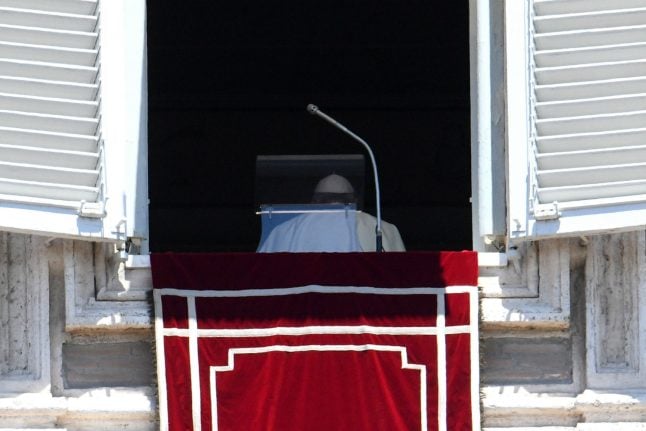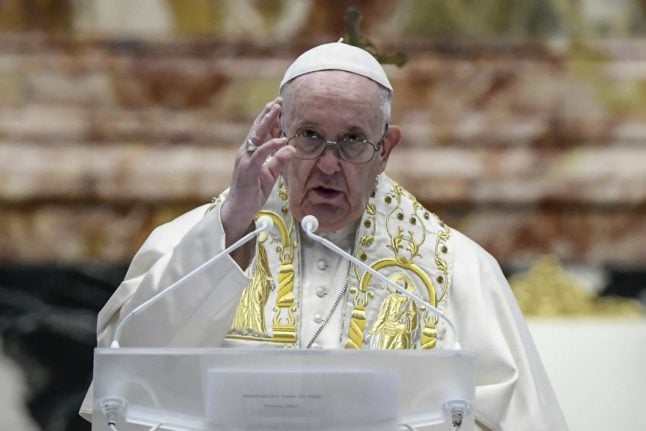Some 50 dignitaries, including several ambassadors to the Holy See, magistrates and police representatives attended the “International Debate on Corruption” to address means of tackling the issue.
The group agreed in a closing statement on the importance of deepening international cooperation to stem corruption.
The Vatican said it was time to put excommunication on the table as a legal sanction for “corruption and mafia association”.
Excommunication is a severe punishment in Catholic doctrine, in that it excludes those sanctioned from holy communion sacraments.
READ ALSO: Priest says he'll 'appeal to pope' over banned mass for mafia boss
Pope Francis has already been active in the fight against corruption. In 2014, he visited the 'Ndrangheta mafia's southern heartland and warned excommunication awaited anyone who followed the criminal path.
There have been cases of local bishops excommunicating mobsters in Sicily or Campania, around Naples, fiefdom of the Camorra — but to date there is no actual legal framework surrounding the sanction.
“We asked ourselves why the rest of Italy and the world should not have the same rules,” said Monsignor Michele Pennisi, archbishop of Monreale in Sicily and a member of the working group.
“The (expert) group raised the problems of Colombian and Mexican drug traffickers — so we need a 'penal decree', a formal legal act at the national and global level,” he told La Stampa daily.
Federico Cafiero de Raho, prosecutor general at Reggio di Calabria, capital of the Calabria region, told the same paper that raising the possibility of formally introducing the sanction of excommunication sends out “a very important signal” given “the Church holds great sway here.”
Relations between the Church and organised crime have been seen to be intertwined to a degree, for example with mafia sponsorship of religious processions.
READ ALSO: Pope Francis offers to act as mediator in Venezuelan conflict




 Please whitelist us to continue reading.
Please whitelist us to continue reading.